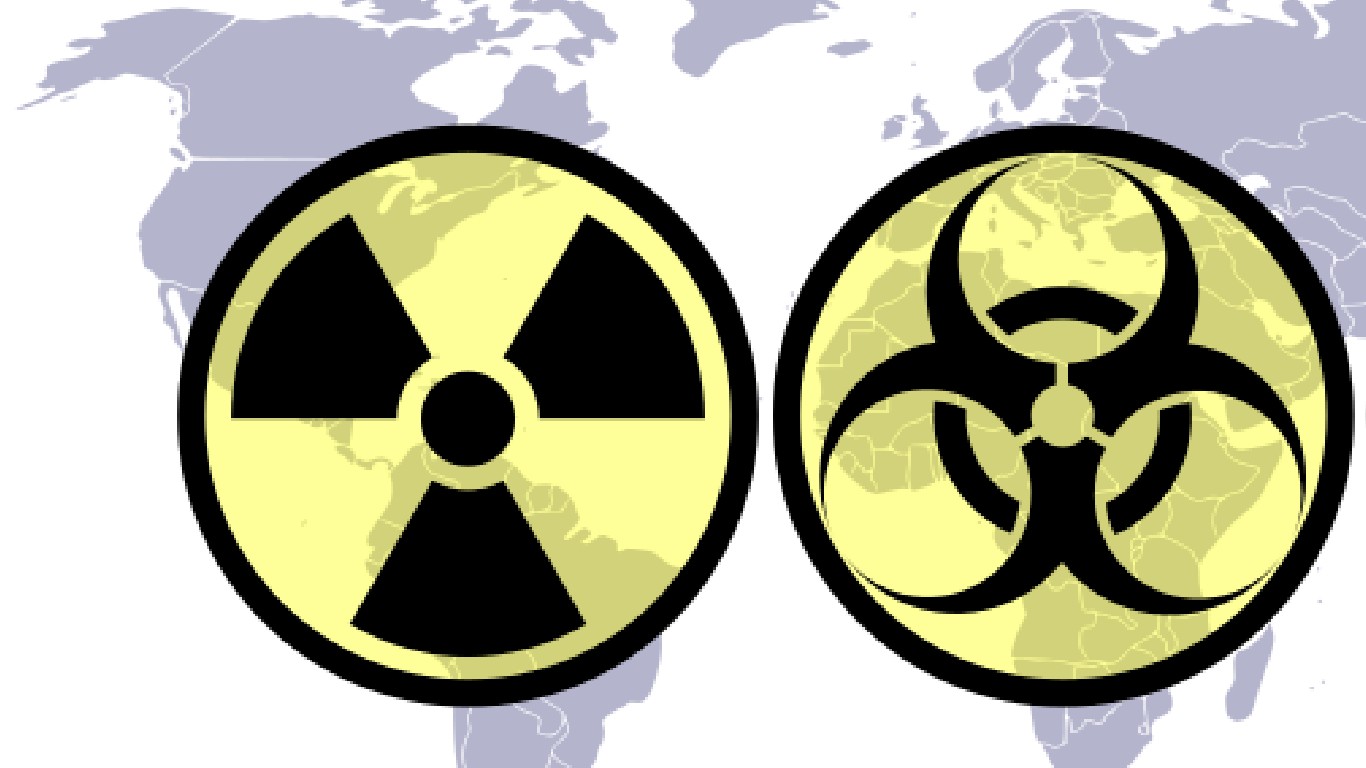
24/7 Wall St. Insights
- We used data from the Status of World Nuclear Forces report from the Federation of American Scientists.
- Only a handful of nations worldwide have nuclear capabilities, yet these countries often have strong military forces and significant defense budgets.
- Also, 2 Dividend Legends To Hold Forever
The atomic bombs “Little Boy” and “Fat Man” quietly dropped from the sky in August 1945 on Hiroshima and Nagasaki, Japan, killing between 150,000 and 246,000, mostly civilians. The only time nuclear weapons have been used in wartime would cause long-term effects of radiation poisoning, burns, injuries, and lethal radioactive debris. In an effort to force a quick surrender and stop the loss of American lives, the United States chose to enact this quick and violent attack and usher in a new era.
Eighteen years later, on June 22, 1973, the United States and the Soviet Union signed an agreement to prevent nuclear war. This was done to reduce the strain between the two countries and help them reach more of an understanding so that nuclear weapons weren’t used without abandon. After World War II, it was easy to see the dangers that nuclear weapons posed to every nation in the world, and both countries wanted to avoid such a threat. International treaties aimed at regulating testing, preventing proliferation, and facilitating disarmament have helped limit the utilization and spread of nuclear capabilities.
To identify the countries with nuclear weapons, 24/7 Wall St. referred to the Status of World Nuclear Forces report from the Federation of American Scientists. This organization works to reduce the spread of nuclear weapons and promote government transparency. The FAS categorizes a country’s nuclear arsenal into four divisions: retired, reserve/nondeployed, deployed nonstrategic, and deployed strategic. We merged the deployed warhead classifications, designating the reserve/non-deployed category as “stored.” Military expenditure figures were sourced from The Stockholm International Peace Research Institute. Notably, GlobalFirepower identifies many of the listed countries as having some of the most powerful conventional armed forces globally.
Why We Decided to Cover Nuclear Weapons
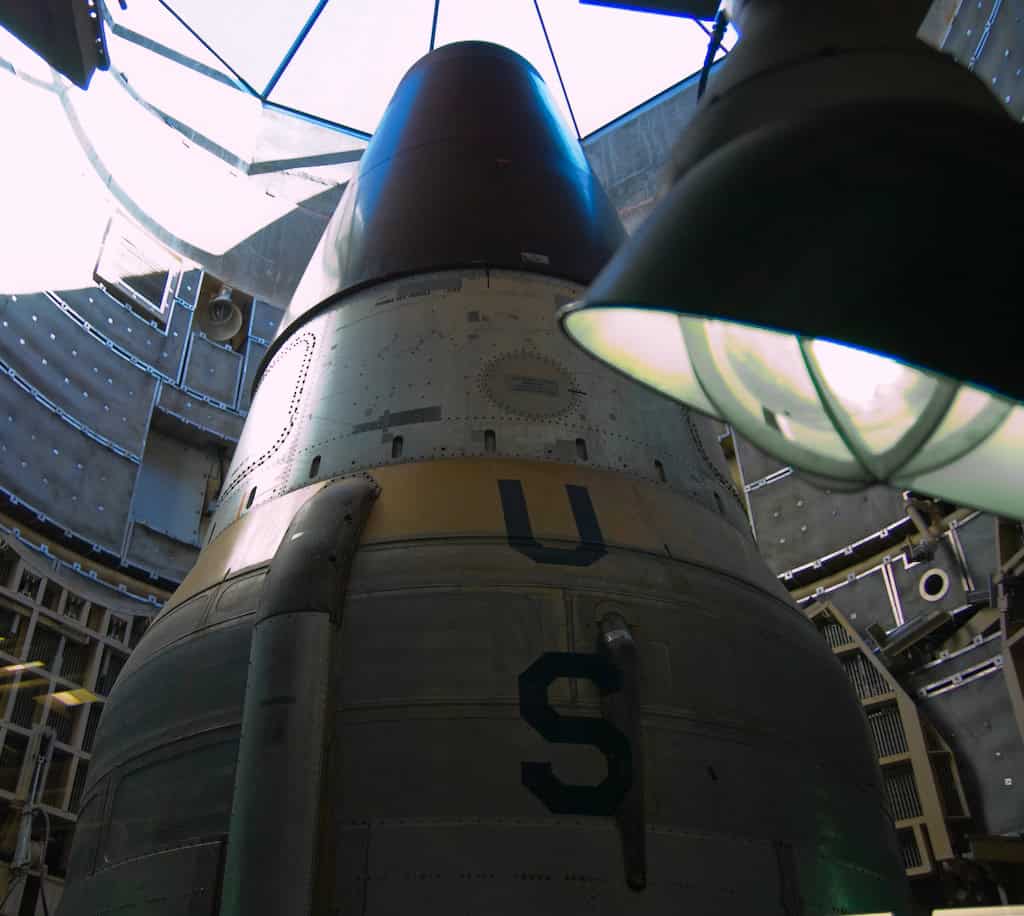
There are strenuous relationships between countries with nuclear weapons. They are powerful tools that can end a war quickly if used right, but they may also end thousands of innocent lives. These weapons lead to certain countries having more power and heavily influence geopolitical relationships throughout the world.
Here are the countries with nuclear weapons, ranked by arsenal size.
9. North Korea

- Year of first test: 2006
- Number of deployed warheads: 0
- Number of stored warheads: 30
- Total number of warheads: 30
- Military expenditure (2022): N/A
Numbers Are Estimated
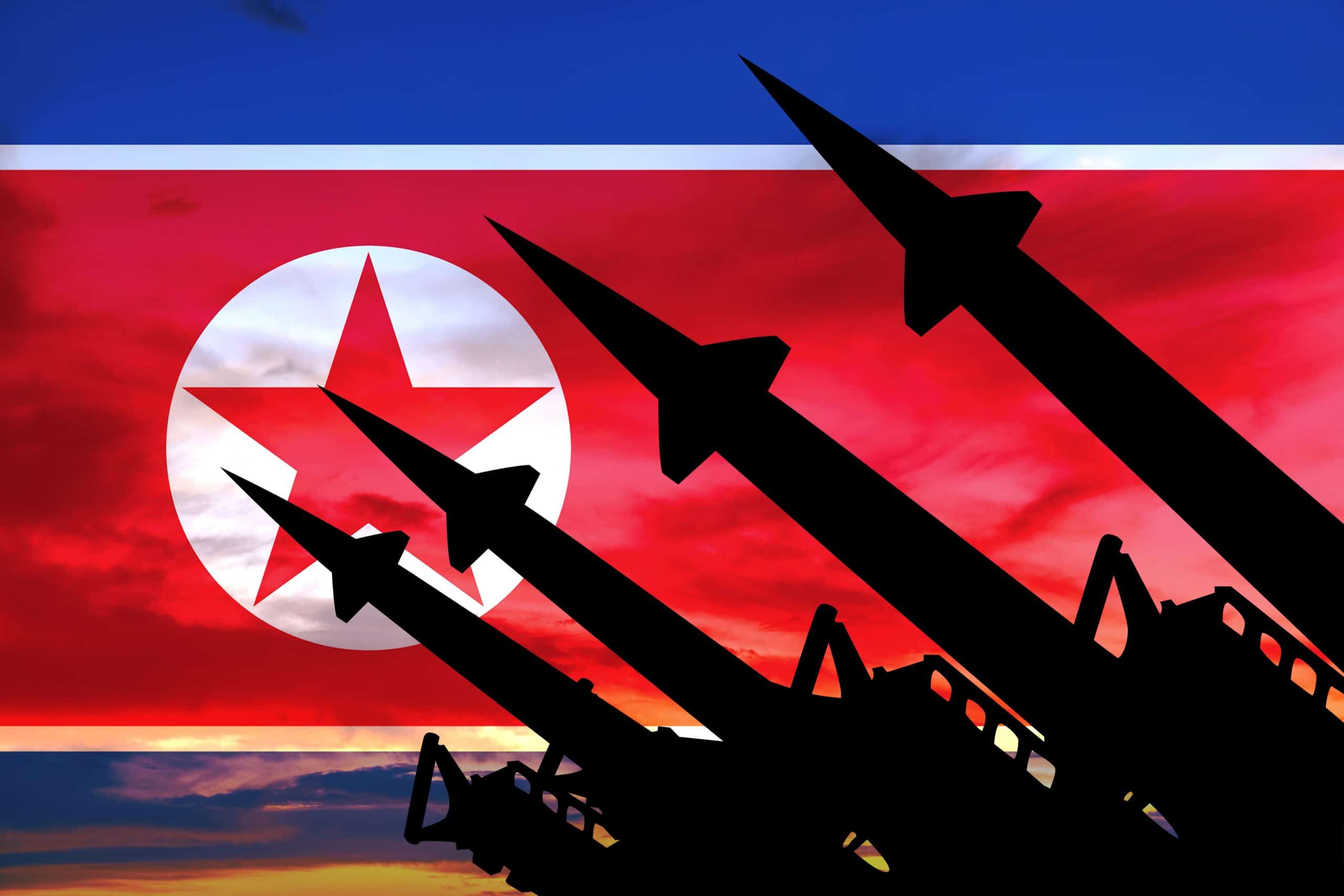
North Korea has focused on creating nuclear weapons in the case of invasion by powerful enemies. Though it maintains a policy never to use its nuclear weapons first, which has been in effect since 2016, North Korea wanted to have some in case they were needed due to provocations. North Korea isn’t big on sharing information about its arsenals, but it’s estimated that it could have as many as 40 to 50 nuclear weapons.
8. Israel
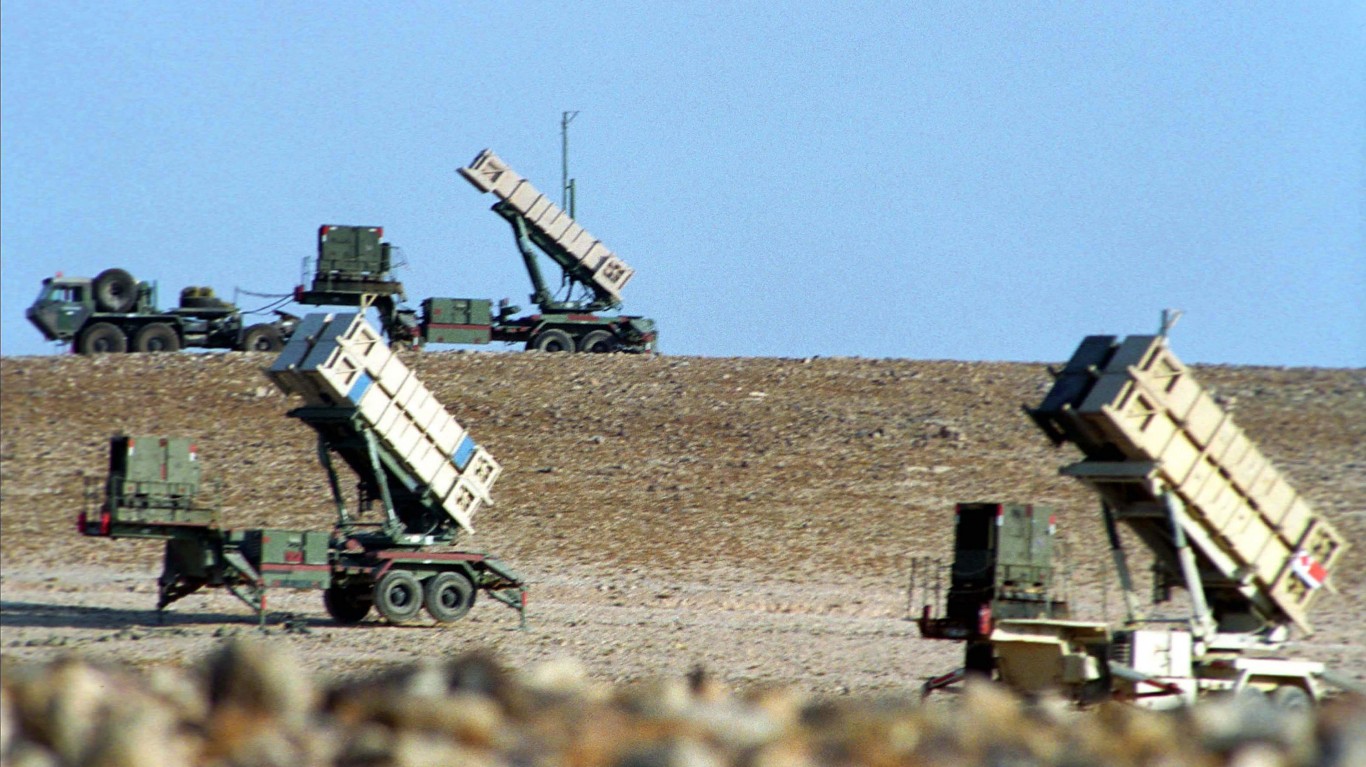
- Year of first test: 2008
- Number of deployed warheads: 0
- Number of stored warheads: 90
- Total number of warheads: 90
- Military expenditure (2022): $23.4 billion
Strong Denials
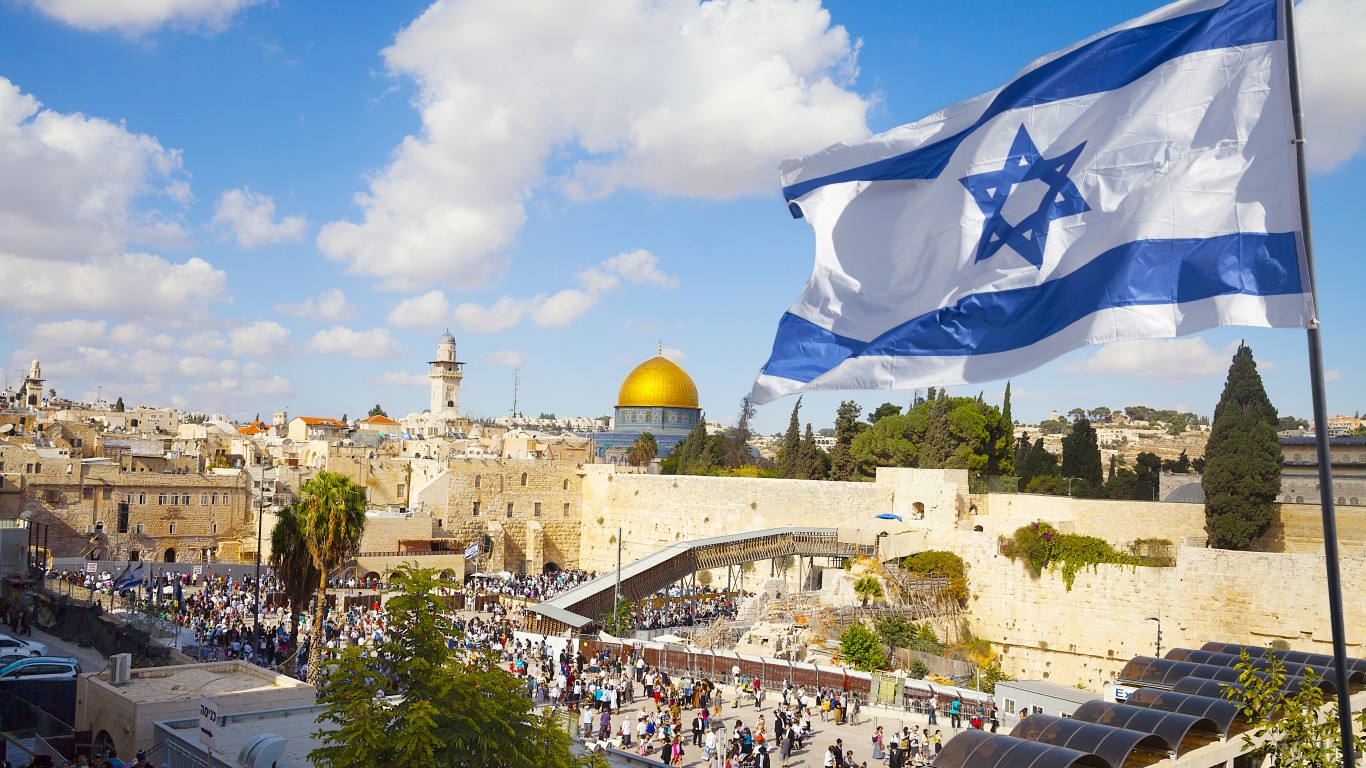
It’s no secret that Israel has nuclear weapons. However, though the information is known, the country strongly denies it. This makes it hard to determine exactly how many nuclear weapons it has. It’s thought that Israel has possibly land-, air-, and sea-based warheads.
7. India
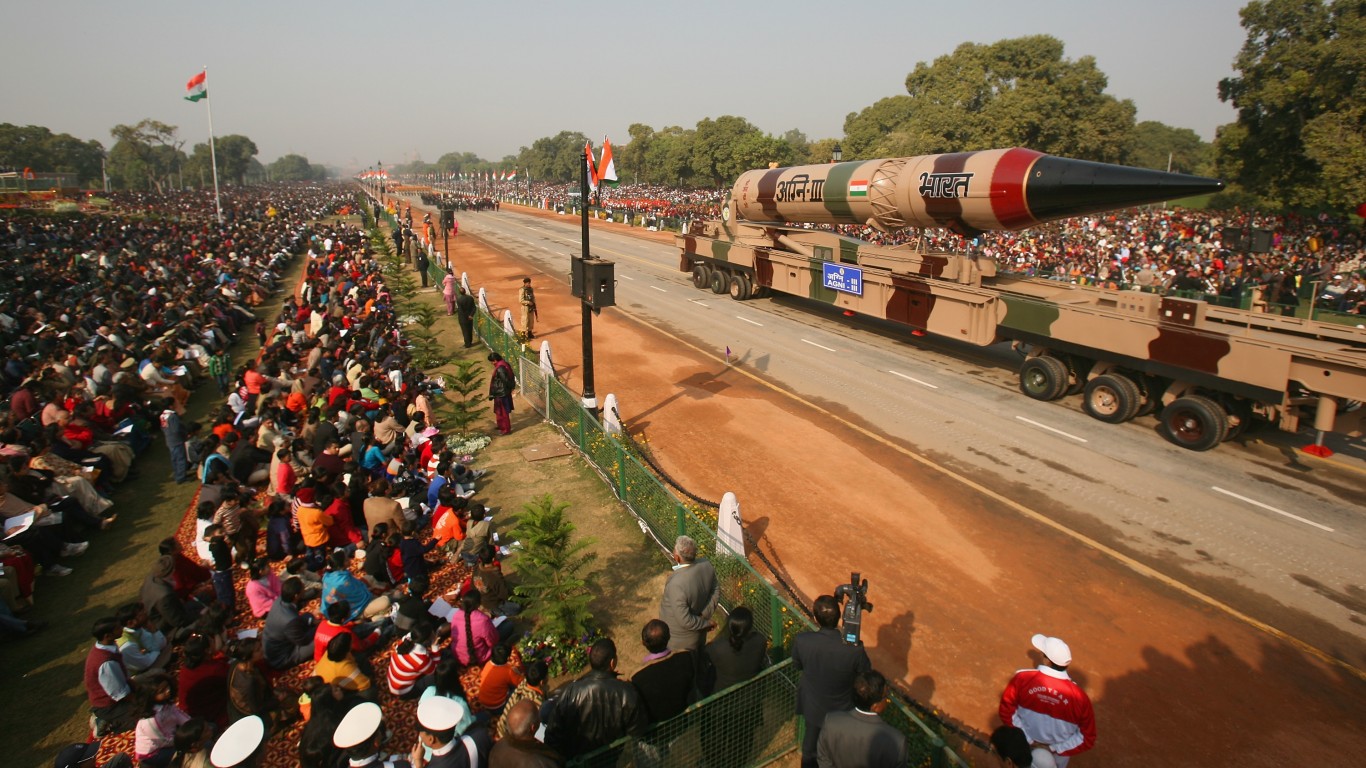
- Year of first test: 1974
- Number of deployed warheads: 0
- Number of stored warheads: 164
- Total number of warheads: 164
- Military expenditure (2022): $81.4 billion
A Large Stockpile
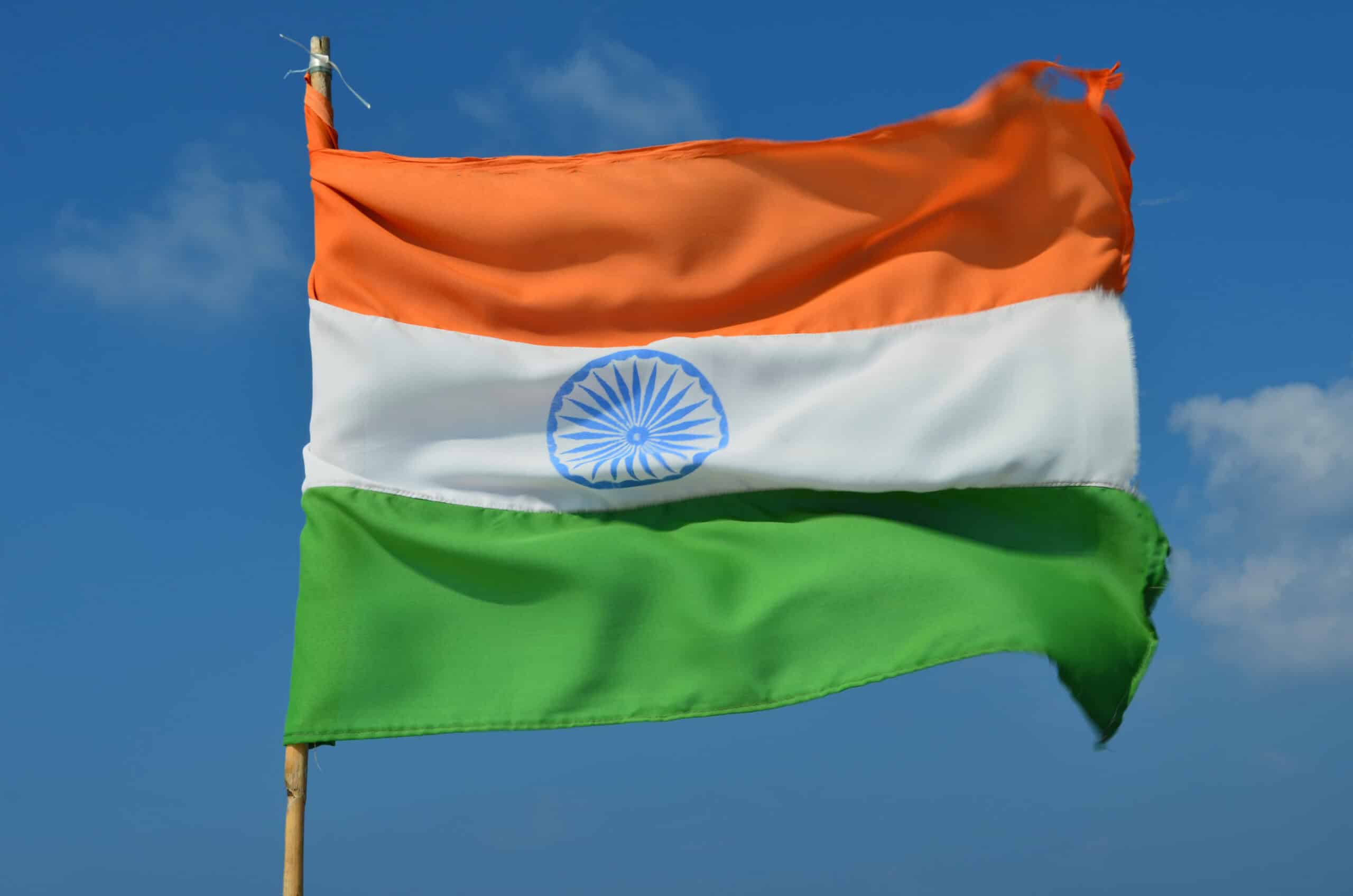
India and Pakistan have been at each other’s throats for a long time. With both countries fearing attacks, they began stockpiling nuclear weapons. India has access to weapons that can be launched from air, land, or sea, and it’s thought that its stockpile is increasing. Though India has enough materials to build around 200 warheads, it’s possible the country only built about 150 so far.
6. Pakistan

- Year of first test: 1998
- Number of deployed warheads: 0
- Number of stored warheads: 170
- Total number of warheads: 170
- Military expenditure (2022): $10.3 billion
Possibly Underestimated
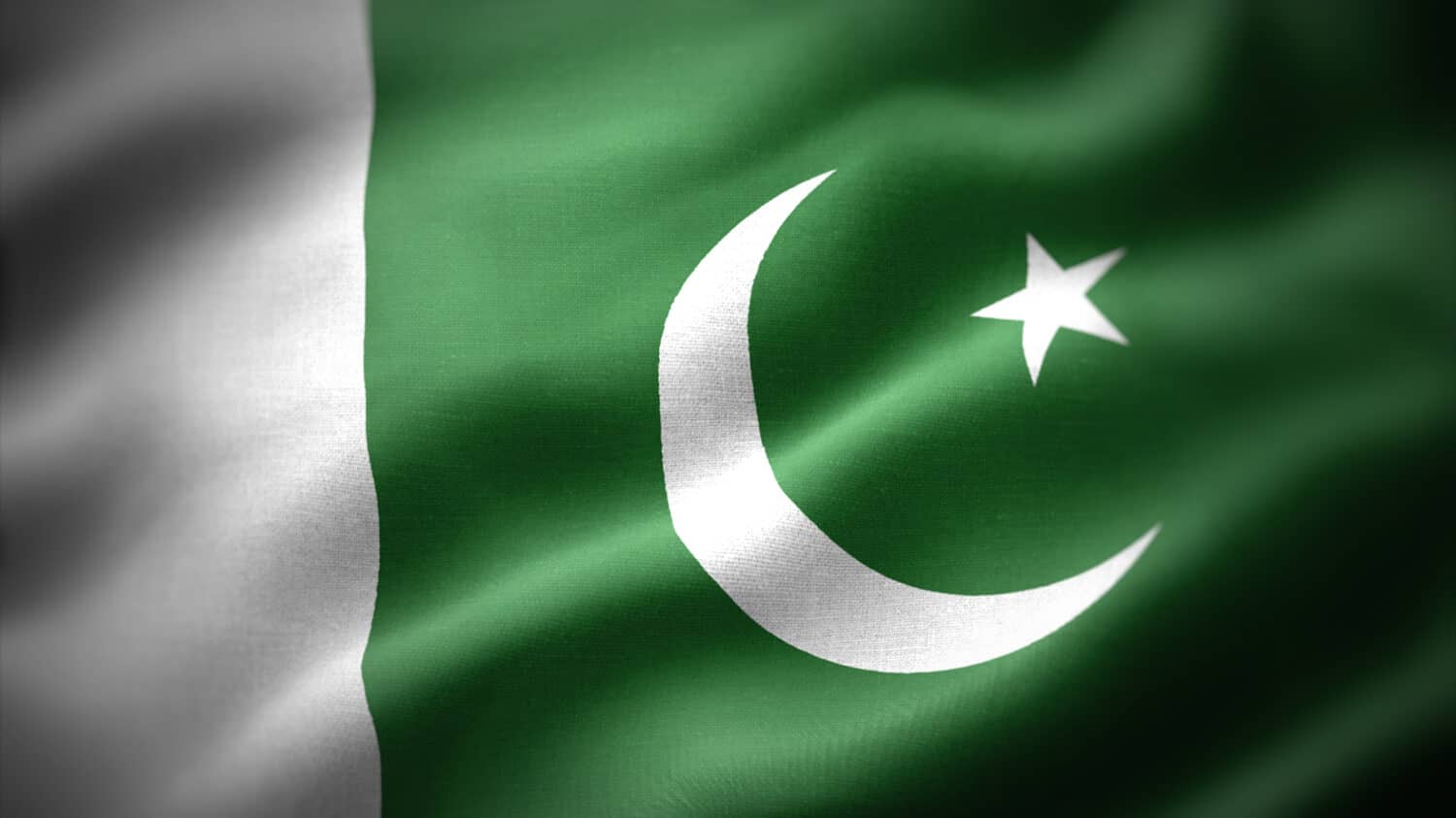
Like India, Pakistan started stockpiling weapons in response to building tensions between the two countries. Pakistan can launch its warheads from land, air, and sea, and it may have as many as 200 nuclear weapons by 2025.
5. United Kingdom
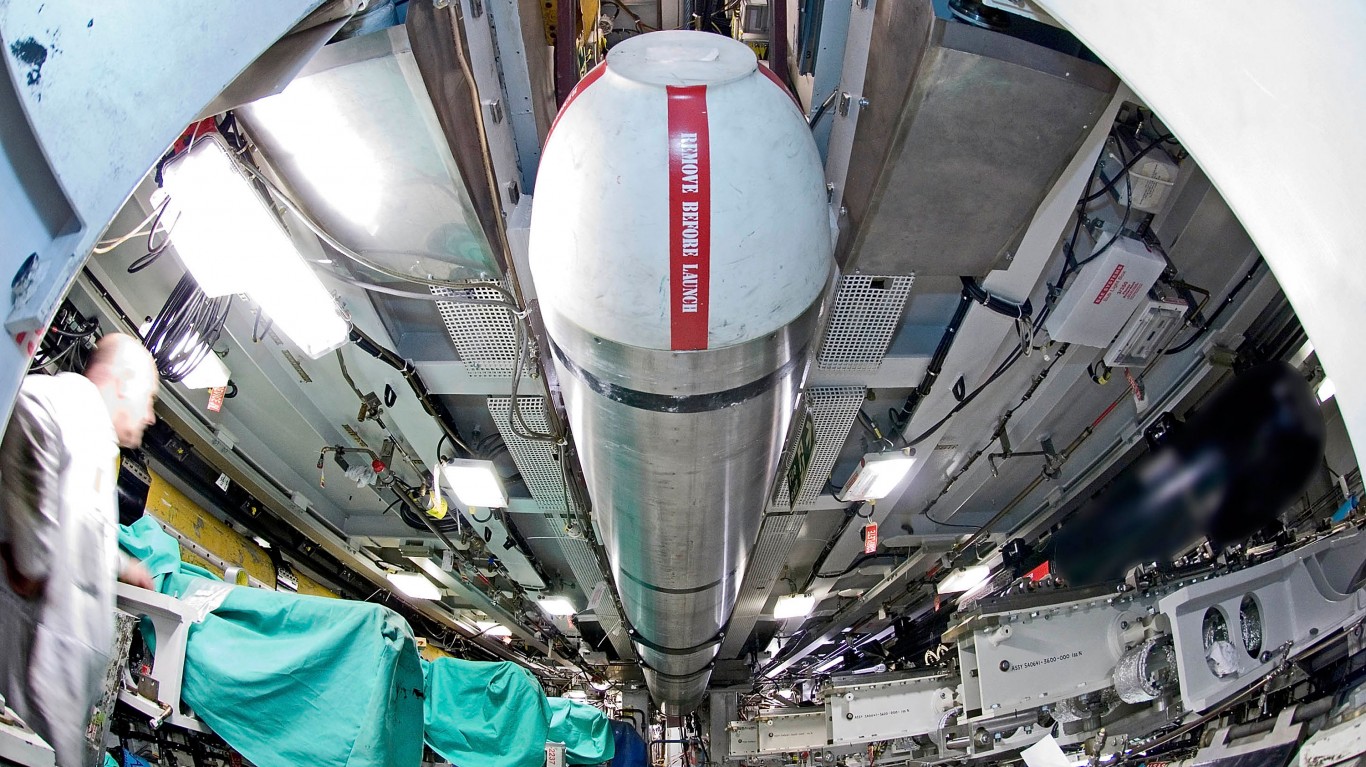
- Year of first test: 1952
- Number of deployed warheads: 120
- Number of stored warheads: 105
- Total number of warheads: 225
- Military expenditure (2022): $68.5 billion
Lacking Deterrence Systems
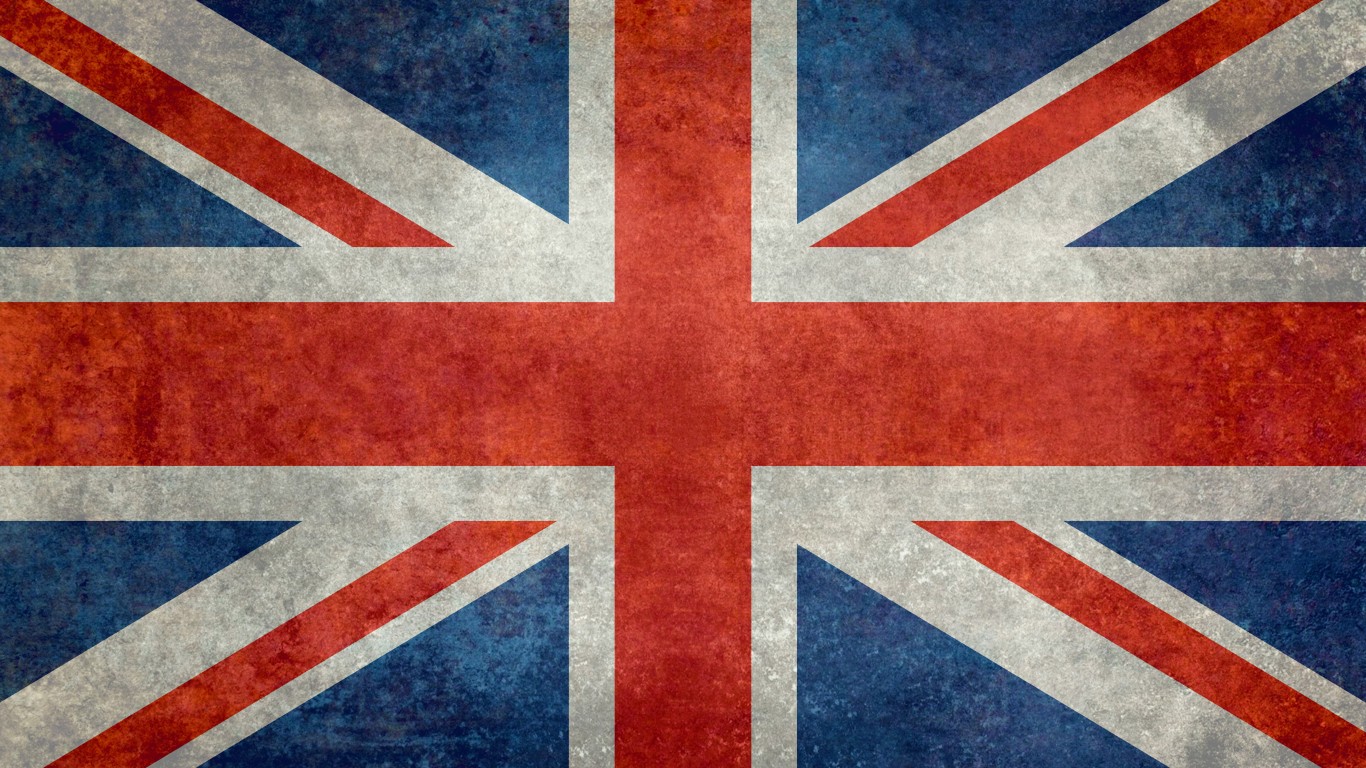
The United Kingdom is in fifth place for the largest arsenal of nuclear weapons. Most can be deployed by submarines, with one Vanguard class submarine able to hold 40 warheads. Though it already has a fair number of nuclear weapons, in 2021, its government announced a plan to increase its stockpile to 260.
4. France
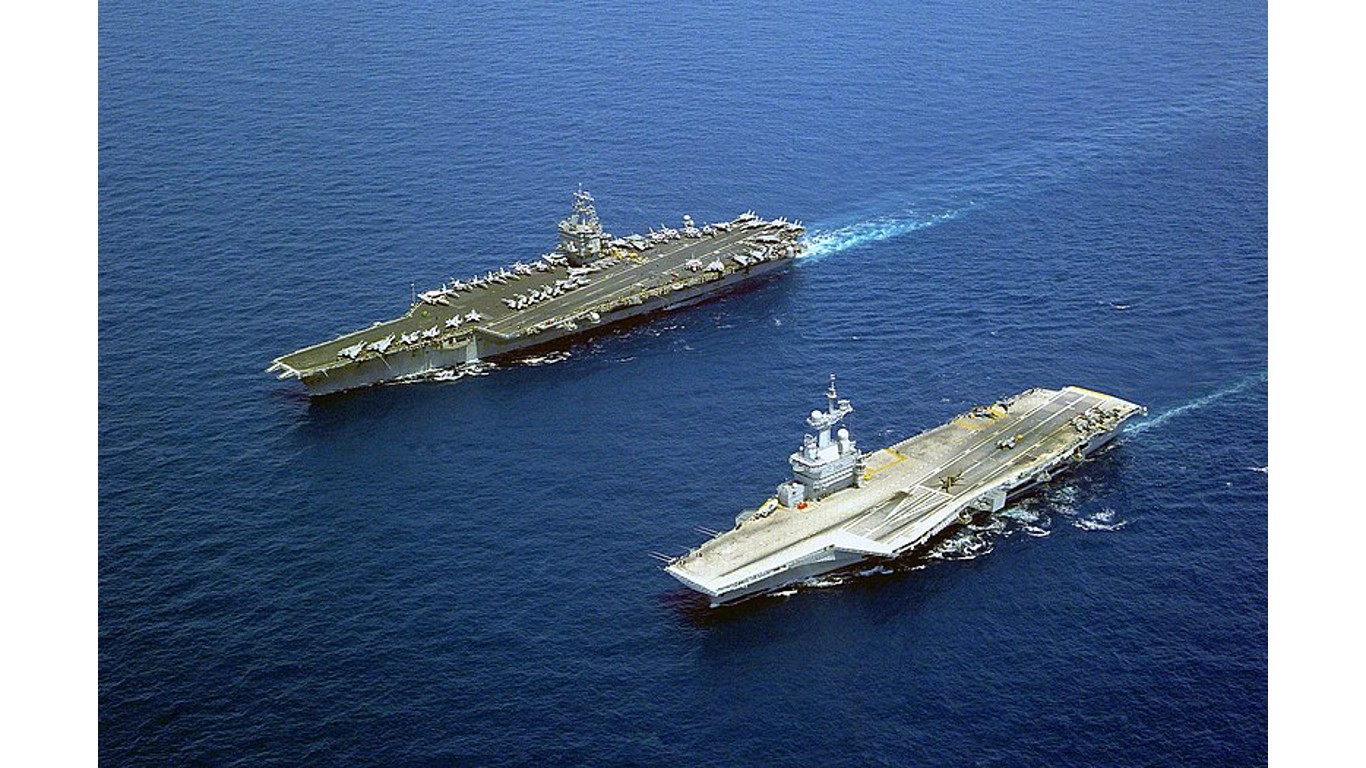
- Number of deployed warheads: 280
- Number of stored warheads: 10
- Total number of warheads: 290
- Military expenditure (2022): $53.6 billion
Stability in Large Numbers
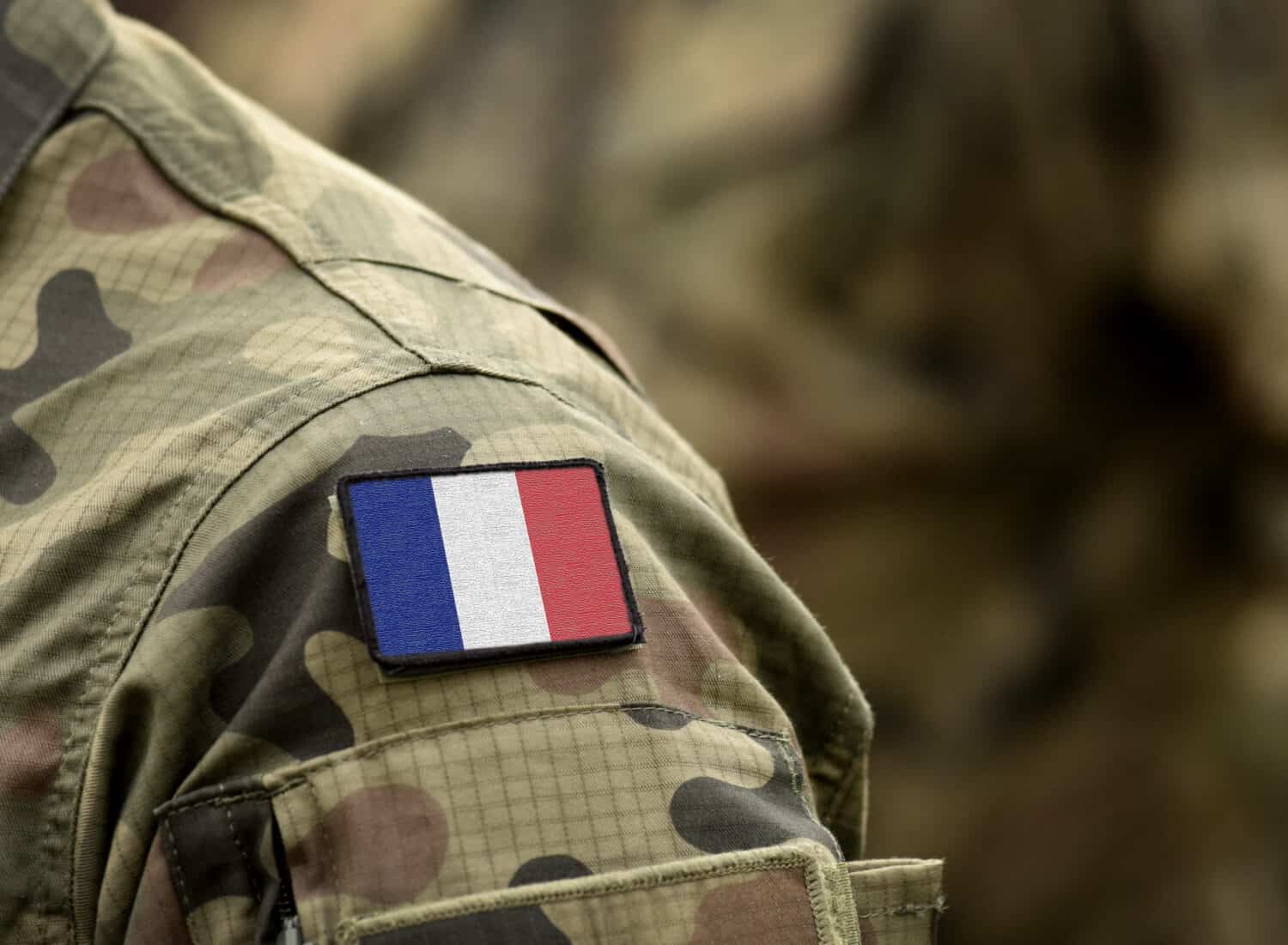
France, even after the U.K.’s announcement to increase their stores, comes out with more warheads, for a total of 290. It also has options to launch several nuclear weapons from land and air as well, though most are still submarine-based. France’s high number of nuclear weapons hasn’t changed in recent years, though.
3. China

- Year of first test: 1964
- Number of deployed warheads: 0
- Number of stored warheads: 410
- Total number of warheads: 410
- Military expenditure (2022): $292.0 billion
Going Modern

While the exact number of nuclear weapons China has stockpiled is unknown, it’s a pretty good assumption that it’s in third place. While China has quite a few, it’s still only a fraction of the number the United States and Russia have. While China isn’t focused on making many new weapons, it is working on upgrading not only warheads but the silos. After China modernizes its stores, the country is expected to start increasing its number of nuclear weapons.
2. United States
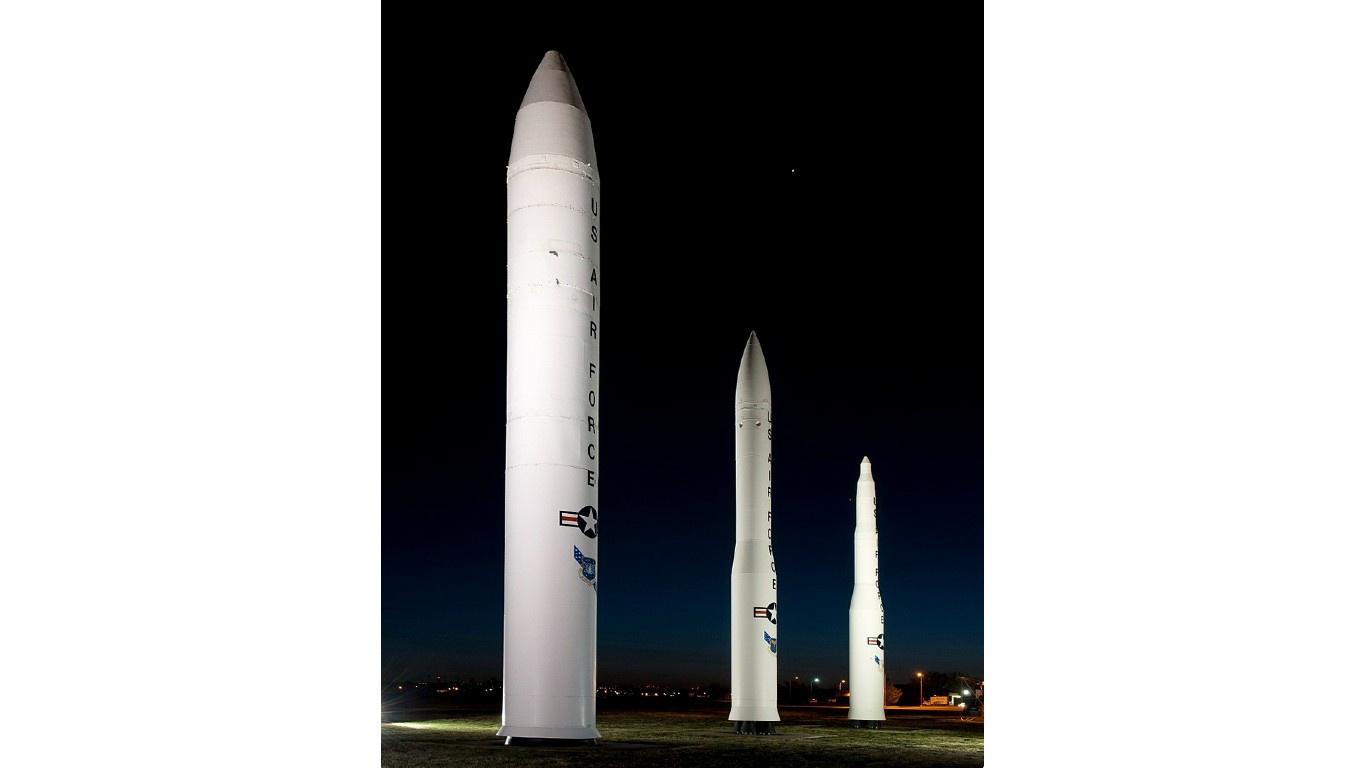
- Year of first test: 1945
- Number of deployed warheads: 1,770
- Number of stored warheads: 1,938
- Total number of warheads: 5,244
- Military expenditure (2022): $876.9 billion
The Only Country to Have Used Them
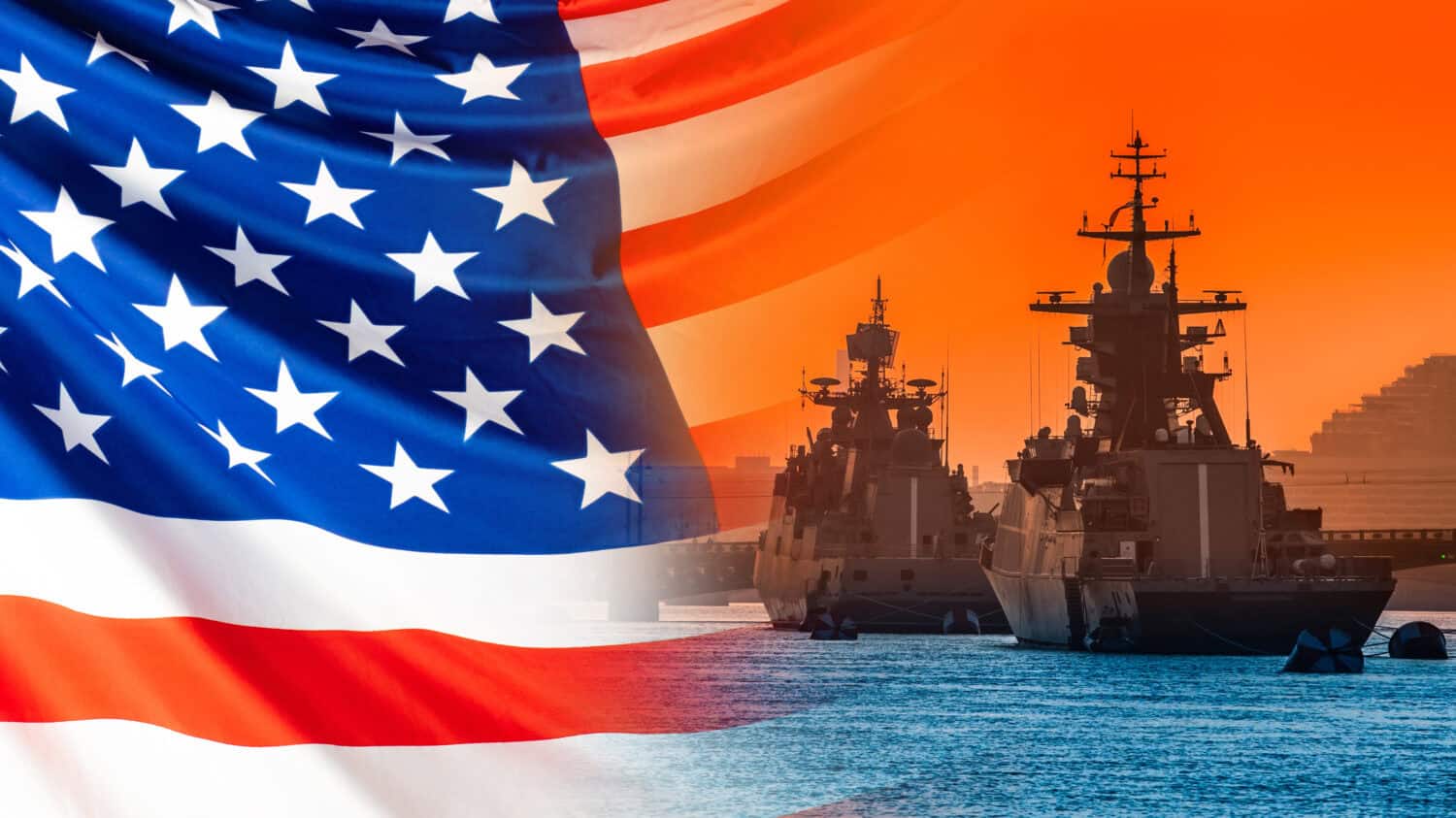
The United States is the country that has had nuclear weapons the longest. It’s also the only one that has used said weapons against another nation. The U.S. has a range of warheads to be launched via land, air, and sea, with some of the oldest being B-52 bombers. Most of the nuclear weapons are in the country, but it has some bases in other nations as well.
1. Russia
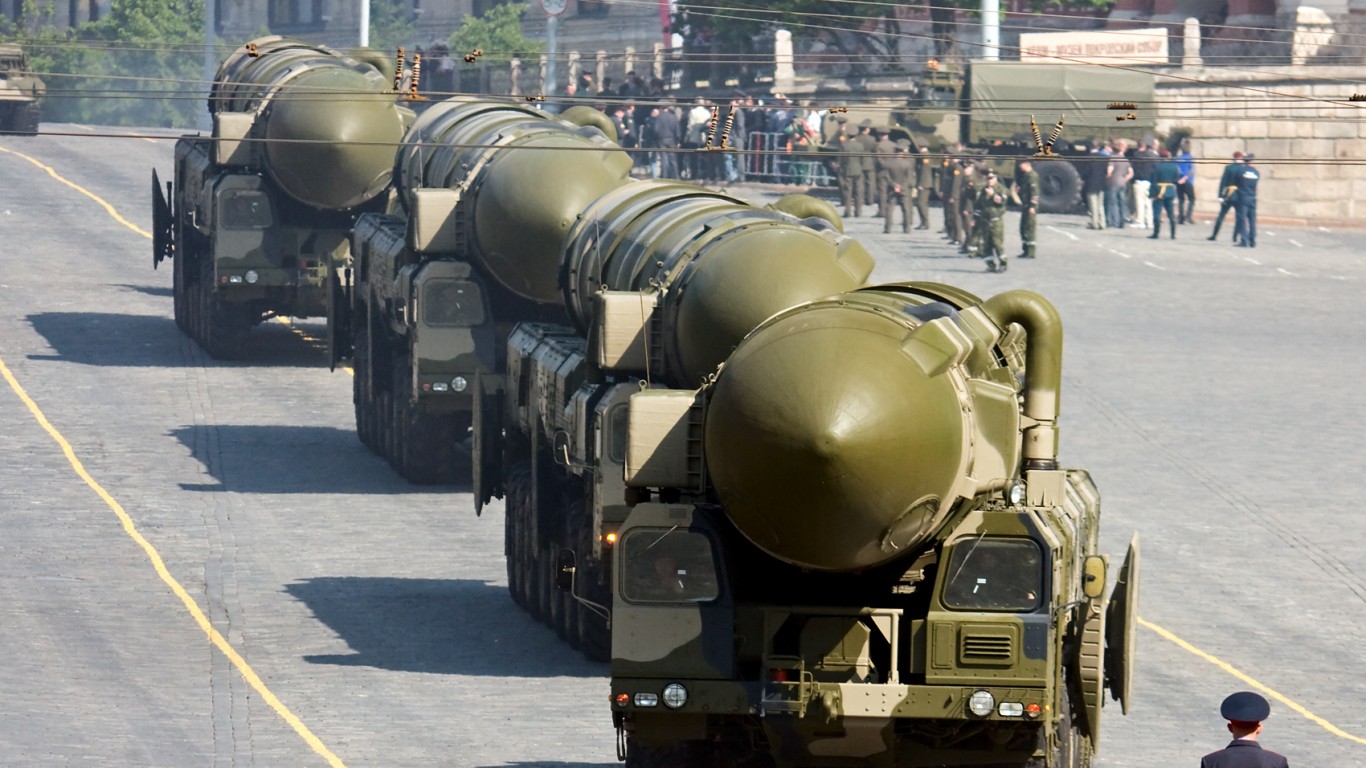
- Year of first test: 1949
- Number of deployed warheads: 1,674
- Number of stored warheads: 2,815
- Total number of warheads: 5,889
- Military expenditure (2022): $86.4 billion
Number One
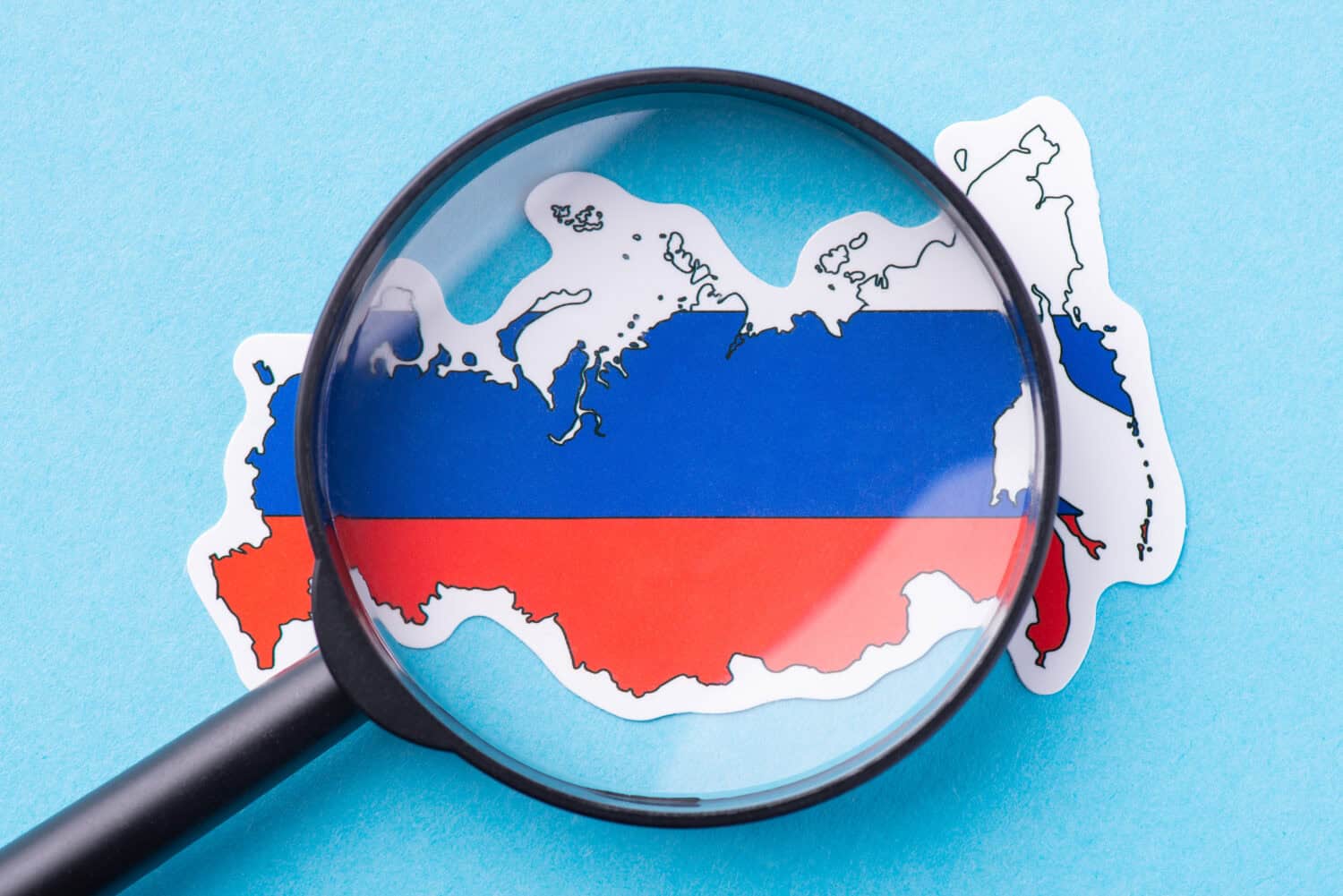
Russia has the most nuclear power at its disposal. Many of them are fairly modern after the country spent several decades modernizing them from the Soviet era. Russia has also been adding new weapons. It deployed additional nuclear cruise missiles that can be fired from its Tupolev Tu-160 (aka Blackjack) strategic bombers. Some of Russia’s other nuclear weapons are deployed from land as well.
Find a Qualified Financial Advisor (Sponsor)
Finding a qualified financial advisor doesn’t have to be hard. SmartAsset’s free tool matches you with up to 3 fiduciary financial advisors in your area in 5 minutes. Each advisor has been vetted by SmartAsset and is held to a fiduciary standard to act in your best interests. If you’re ready to be matched with local advisors that can help you achieve your financial goals, get started now.
Thank you for reading! Have some feedback for us?
Contact the 24/7 Wall St. editorial team.